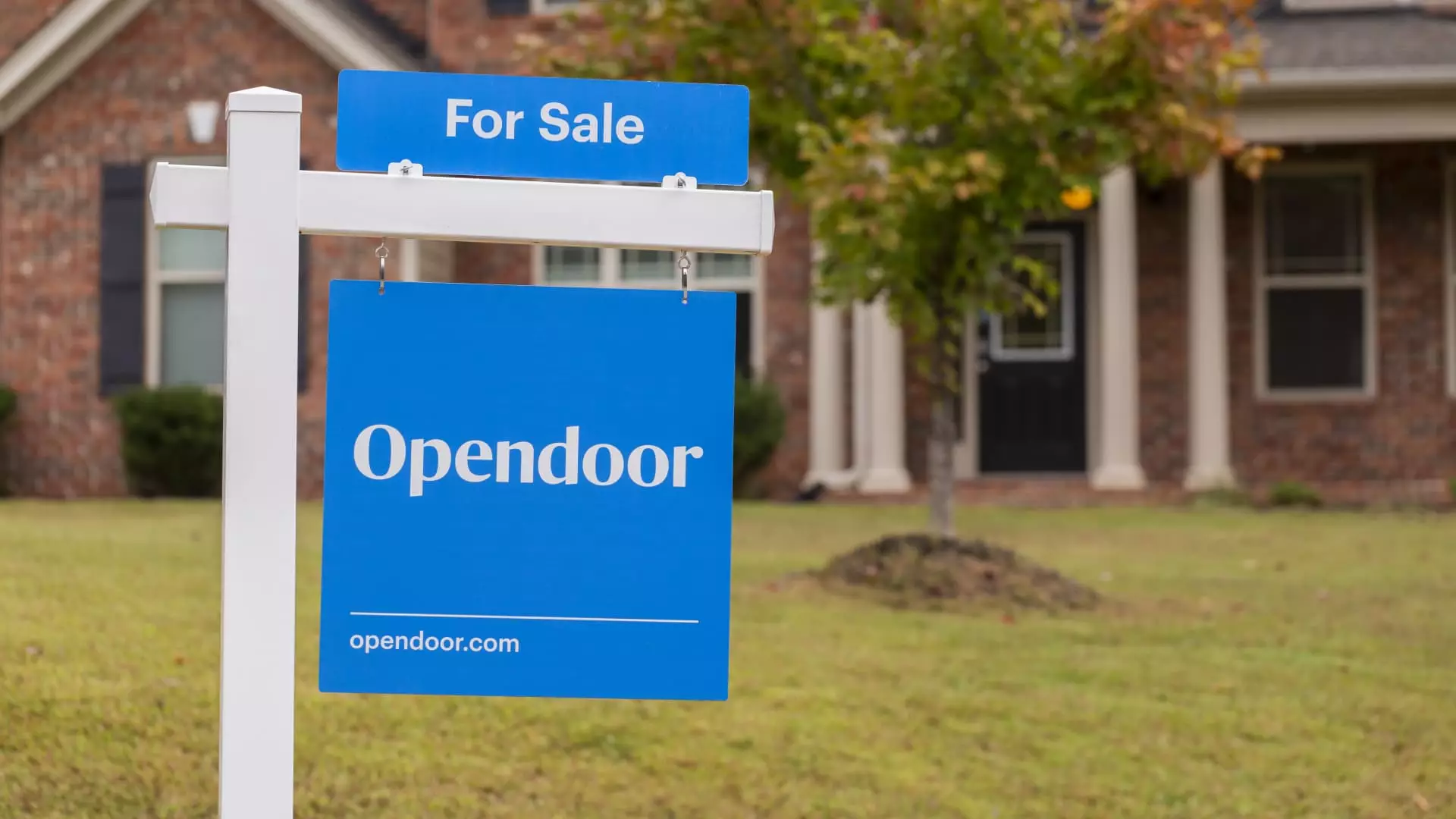The recent upheaval at Opendoor underscores a broader truth about the modern real estate market—digital innovation alone does not guarantee sustainability. While the company’s pivot to technology-driven home transactions promised efficiency and convenience, it also exposed vulnerabilities inherent in a sector heavily impacted by macroeconomic fluctuations. The resignation of CEO Carrie Wheeler signals a critical acknowledgment: leadership upheaval won’t compensate for fundamental flaws rooted in overly optimistic growth projections and an overreliance on a booming but inherently cyclical industry.
Rather than serving as a sign of renewed resilience, the stock’s brief rally after Wheeler’s departure highlights the speculative fervor that still surrounds Opendoor. Retail investors, captivated by the allure of quick gains and the promise of disruptive technology, oversimplify the complexities of the housing market. What is needed is a sober reassessment of the business model—one that recognizes that in real estate, technological shortcuts cannot replace prudent risk management or withstand the inevitable cycles of inflation, interest rate hikes, and economic downturns.
Overvaluation and the Illusion of a Turnaround
Since its peak, Opendoor’s valuation has become a cautionary tale about how hype often outpaces reality. The company’s market cap, once soaring, has now been sliced by over 90%, revealing investor exuberance as a fragile mirage. The recent jump in stock price following Wheeler’s exit—prompted by hedge fund advocates and opportunistic traders—reflects a misplaced confidence rooted in speculation rather than solid fundamentals.
Opendoor’s declining home acquisitions and cautious marketing spend reveal a company struggling to adapt amidst external pressures. Relying on rapid property turnover and margin gains proves less sustainable than a focus on stable, long-term profit. The notion that one can dominate a market as layered and cyclical as housing through digital efficiencies, without a firm grasp on economic headwinds, gives rise to illusions of invincibility—illusions that are ultimately shattered under economic stress.
Leadership Turnover as a Symptom, Not a Solution
The leadership turmoil at Opendoor exposes a deeper issue: a lack of strategic clarity and resilience. Wheeler’s departure, framed as an effort to bring fresh leadership, appears more as a last-ditch attempt to salvage investor confidence than a genuine reset. Appointing an interim president amid an ongoing search for a permanent CEO signals instability rather than innovation.
The vocal dissent from industry insiders and former founders underlines a fundamental disconnect. If the core leadership failed to inspire confidence, then simply replacing the figurehead without addressing underlying business model flaws risks superficial fixes. Experience shows that in volatile sectors, long-term strength comes from disciplined management and a clear strategic vision—qualities that seem lacking at present.
The Broader Economic Reality: Risks and Responsibilities
Opendoor’s predicament is symptomatic of the broader risks that come from unchecked optimism fueled by market euphoria. While some investors revel in high-risk bets, ignoring the warning signs of overvaluation and macroeconomic headwinds is perilous. The real estate sector, central to American prosperity, cannot be treated as a speculative playground for tech-driven quick wins.
As interest rates rise and inflation persists, the financial environment grows more hostile to companies like Opendoor that depend on low borrowing costs and rapid transaction cycles. This environment demands responsible leadership—leaders who prioritize stability over hype, and prudence over hypergrowth. For a center-right liberal perspective, it’s vital that regulatory oversight, market discipline, and corporate accountability curb reckless speculation and safeguard the economy’s foundation.
The Road Ahead: Skepticism as a Civic Duty
The future of Opendoor hinges not on another wave of hype but on genuine structural reforms and a realistic view of the housing market’s intricacies. As the company searches for new leadership, it must confront its own shortcomings—particularly its overambition and overly optimistic valuations. Investors and policymakers alike should approach such high-flying tech platforms in real estate with a healthy dose of skepticism, emphasizing responsible growth that aligns with economic realities rather than chasing fleeting gains.
In this climate, opportunistic traders and speculators should remind themselves that volatility isn’t a sign of innovation but a cautionary tale—a reminder to build resilient, sustainable businesses rather than chase the illusion of quick riches. Opendoor’s struggles are less about individual leadership and more about the systemic caution needed to navigate an industry that remains fundamentally tied to the ebb and flow of economic tides.

